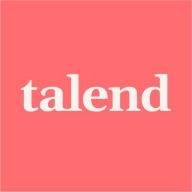

Ab Initio Co>Operating System and Talend Open Studio compete in the data integration domain. Ab Initio excels in performance and scalability, while Talend stands out for accessibility and open-source flexibility.
Features: Ab Initio Co>Operating System includes parallel processing, dynamic metadata management, and enterprise-grade capabilities. Talend Open Studio offers open-source architecture, extensive connectivity, and adaptability for diverse data integration tasks.
Ease of Deployment and Customer Service: Ab Initio's deployment is complex, requiring skilled personnel but offers dedicated support. Talend Open Studio is user-friendly with community support, allowing quicker deployment and simplicity.
Pricing and ROI: Ab Initio Co>Operating System requires a significant upfront investment yielding high ROI for complex data needs. Talend Open Studio's open-source nature provides cost-effective implementation with a faster ROI for small to mid-sized organizations.
| Product | Market Share (%) |
|---|---|
| Talend Open Studio | 3.2% |
| Ab Initio Co>Operating System | 1.6% |
| Other | 95.2% |

| Company Size | Count |
|---|---|
| Small Business | 22 |
| Midsize Enterprise | 13 |
| Large Enterprise | 18 |
Ab Initio Co>Operating System offers powerful data processing capabilities, catering to big data needs with robustness and flexibility. Its architecture is designed for high performance, efficient data management, and advanced analytics, making it suitable for tech-savvy industries.
Ab Initio Co>Operating System provides an integrated platform that simplifies data processing tasks, from data validation to complex data transformations. It's engineered to handle large data volumes with efficiency, featuring an intuitive design and consistent performance. This makes it indispensable for industries requiring seamless integration and processing power, supported by tools for debugging, metadata management, and data profiling.
What are the key features of Ab Initio Co>Operating System?In industries like telecommunications and finance, Ab Initio Co>Operating System is implemented to streamline data workflows and provide real-time analytics. Its role in these sectors involves batch processing, complex event processing, and integrating diverse sources, addressing the demands for agility and performance excellence.
Talend Open Studio is a free, open source ETL tool for data integration and Big Data. The solution enables you to extract diverse datasets and normalize and transform them into a consistent format which can be loaded into a number of third-party databases and applications.
Talend Open Studio Features
Talend Open Studio has many valuable key features. Some of the most useful ones include:
Talend Open Studio Benefits
There are several benefits to implementing Talend Open Studio. Some of the biggest advantages the solution offers include:
Reviews from Real Users
Below are some reviews and helpful feedback written by PeerSpot users currently using the Talend Open Studio solution.
Elio B., Data Integration Specialist/CTO at Asset messages, says, "The solution has a good balance between automated items and the ability for a developer to integrate and extend what he needs. Other competing tools do not offer the same grade of flexibility when you need to go beyond what is provided by the tool. Talend, on the other hand, allows you to expand very easily."
A Practice Head, Analytics at a tech services company mentions, “The data integration aspect of the solution is excellent. The product's data preparation features are very good. There's very useful data stewardship within the product. From a technical standpoint, the solution itself is pretty good. There are very good pre-built connectors in Talend, which is good for many clients or businesses, as, in most cases, companies are dealing with multiple data sources from multiple technologies. That is where a tool like Talend is extremely helpful.”
Prerna T., Senior System Executive at a tech services company, comments, “The best thing I have found with Talend Open Studio is their major support for the lookups. With Salesforce, when we want to relate our child objects to their parent object, we need to create them via IDs. Then the upsert operation, which will allow you to relate a child object to the event, will have an external ID. That is the best thing which keeps it very sorted. I like that.”
An Implementation Specialist, Individual Contributor at a computer software company, states, “I can connect with different databases such as Oracle Database or SQL Server. It allows you to extract the data from one database to another. I can structure the data by filtering and mapping the fields.” He also adds, “It is very user-friendly. You need to know the basics of SQL development or SQL queries, and you can use this tool.”
PeerSpot user Badrakh V., Information System Architect at Astvision, explains, "The most valuable features are the ETL tools."
We monitor all Data Integration reviews to prevent fraudulent reviews and keep review quality high. We do not post reviews by company employees or direct competitors. We validate each review for authenticity via cross-reference with LinkedIn, and personal follow-up with the reviewer when necessary.